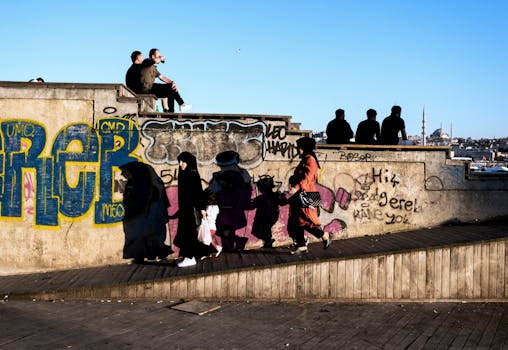
Cultural Fusion: Embracing Diversity in European Lifestyles by 2025
Cultural Fusion: Embracing Diversity in European Lifestyles by 2025 is an integral part of the continent’s future. As the world becomes increasingly interconnected, cultural fusion is on the rise in European lifestyles. By 2025, diversity and inclusion are expected to play a significant role in shaping the continent’s social, economic, and cultural landscape.
Introduction to Cultural Fusion
Cultural fusion refers to the blending of different cultural practices, traditions, and values to create a unique and diverse cultural identity. In Europe, cultural fusion is driven by migration, globalization, and technological advancements. As people from different cultural backgrounds interact and exchange ideas, they create new cultural forms, customs, and traditions.
Benefits of Cultural Fusion
Cultural fusion has numerous benefits for European societies. It promotes diversity, inclusion, and social cohesion, leading to a more vibrant and dynamic cultural landscape. Cultural fusion also drives innovation, creativity, and economic growth, as people from different cultural backgrounds bring new ideas and perspectives to the table.
Challenges of Cultural Fusion
Despite its benefits, cultural fusion also poses challenges for European societies. One of the main challenges is the risk of cultural homogenization, where dominant cultures overshadow minority cultures. Another challenge is the potential for social and economic inequality, as some groups may struggle to adapt to changing cultural norms and values.
Embracing Diversity in European Lifestyles
To embrace diversity in European lifestyles, it is essential to promote cultural understanding, tolerance, and inclusion. This can be achieved through education, cultural exchange programs, and community initiatives that celebrate diversity and promote social cohesion. By 2025, European societies must prioritize diversity and inclusion to create a more harmonious and prosperous continent.
Conclusion
In conclusion, cultural fusion is an integral part of European lifestyles, and by 2025, it is expected to play a significant role in shaping the continent’s social, economic, and cultural landscape. While there are challenges associated with cultural fusion, the benefits of diversity, inclusion, and social cohesion make it an essential aspect of European societies. As the continent continues to evolve, it is crucial to prioritize cultural understanding, tolerance, and inclusion to create a more vibrant, dynamic, and harmonious Europe.





